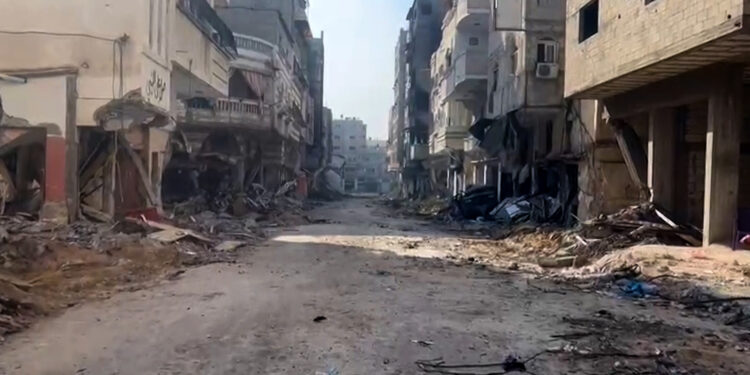The World Bank expects the Palestinian economy to contract by 3.7% at the end of the current year, 2023, and by 6% in 2024, as a result of the ongoing Israeli aggression on the Gaza Strip, noting that it had expected last September to record a growth of 3.2%. This comes after the bank conducted a preliminary assessment of the damage to the Palestinian economy since the start of the aggression.
This estimate can be adjusted – according to the World Bank – according to the duration of the war and its consequences, in terms of the extent of the destruction in the Gaza Strip and the restrictions imposed on the movement of Palestinians within the West Bank, the loss of their jobs by Palestinians working in Israel, and even the contraction of the Israeli economy itself, on which the Palestinians depend greatly.
The World Bank stated in its report that it expects the intensity of the conflict to decline in 2024, but the Israeli government will impose strict restrictions on movement and entry into the Gaza Strip, which will limit economic activity and trade.
The scale of destruction in the Gaza Strip will have an impact, even though the Gaza economy represents only 15% of the Palestinian gross domestic product.
The World Bank indicated, according to the data, that the extent of the damage in the Gaza Strip was very large at the end of November during the truce, as 60% of information and communications technology equipment was damaged or completely destroyed, more than 60% of the health and educational infrastructure, and 70% % of commercial infrastructure and up to half of the road network.
Dramatic deterioration
As of the end of last month, half a million people out of 2.2 million in the Gaza Strip had lost their homes, and the poverty rate, which had already reached 60% before the recent aggression, is expected to increase.
To avoid a more “dramatic” economic deterioration, the bank called for “a cessation of hostilities,” to allow for “major changes on the ground,” as well as the resumption of “trade and private sector activity in the West Bank and Gaza Strip,” along with “increased financial support from the international community.”
He also announced the establishment of an emergency program worth $10 million, provided by Japan and Germany, to transport medical equipment to the Gaza Strip to meet the most urgent needs. The bank said that the equipment will enter the Gaza Strip through convoys from the World Health Organization and UNICEF.
According to the bank’s estimates, 350,000 people in the Gaza Strip suffer from diseases such as diabetes, cancer, and heart problems, while the number of pregnant women is 50,000, 183 children are born every day, and the number of those in incubators currently stands at 130 children.
The number of displaced people has now reached 1.6 million people, and they are gathering in the southern Gaza Strip after fleeing the battles. Humanitarian conditions are described as extremely difficult, with shortages of medicines, food, water and fuel, especially to operate generators.



